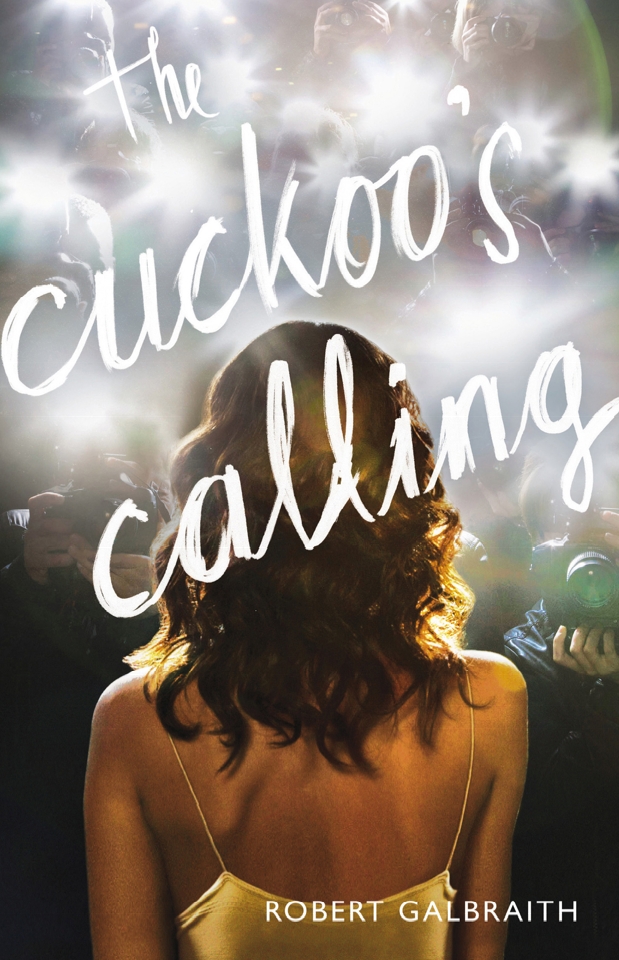J.K. Rowling wanted to see how it would feel to publish a crime novel without all the pressure that goes with her famous name.
Now she knows.
When “The Cuckoo’s Calling” came out under the pseudonym Robert Galbraith, it got nice reviews from publishing-industry magazines but was virtually ignored by the mainstream press. It sold 1,500 hardcover copies in Britain, the publisher said, and fewer in the United States, according to Nielsen BookScan, which covers about 80 percent of U.S. sales.
Then someone tipped off London’s Sunday Times that Rowling was the book’s author, and suddenly Little, Brown is printing 300,000 more copies. All this just a week before Rowling’s first novel for adults, “The Casual Vacancy,” is published in paperback. Coincidence?
Naturally I sat right down and read the book once I found out Rowling had written it. Do I feel bad that I missed it in April? Not at all. It’s an engaging detective story, but nothing makes it stand out among the hundreds of others that pass through my office every year.
The hero is Cormoran Strike, a London private eye who lost a leg in Afghanistan while working for the military police. As the story begins, he’s deeply in debt and has only one client. He’s split up with his posh girlfriend and is reduced to living in his shabby office off Charing Cross Road. A temp service he meant to cancel has sent him an eager-beaver secretary named Robin, and he doesn’t have the heart to send her home.
Then in walks salvation: A rich lawyer, John Bristow, wants Strike to investigate the death of his adopted sister, a supermodel named Lula Landry, who fell to her death from her penthouse window in what the police quickly ruled a suicide. John thinks she was murdered.
The supermodel set-up lets Rowling get in plenty of digs at the media, though she wasted an opportunity by not having Strike interview any of the paparazzi who were outside Lula’s apartment a few hours before she died.
Among the people he does interview: an over-the-top fashion designer, a make-up artist, a homeless woman Lula befriended in rehab, an obnoxious movie producer and his social-climbing wife. In time-honored fashion, they each unwittingly give Strike a tiny part of the puzzle; he puts the pieces together with the help of Robin, who (unsurprisingly) surprises Strike with her excellent detective instincts.
It turns out that investigating Lula’s death isn’t Strike’s first brush with fame – his father is a Mick Jagger-like rock star and his mother is known as a super-groupie. I’m not sure what the point is of having him be an Afghanistan vet, except that he gets to take off his aching prosthesis a lot. Rowling seems more interested in the living-with-fame angle than the army-veteran angle, which makes sense from a famously private mega-selling author who’s writing a book under a pseudonym.
As always, Rowling has a way with descriptions, and there’s a lot of London atmosphere. Things pick up whenever Robin is around — it’s fun to see her astonish Strike by slyly getting crucial information out of a sales assistant at a luxury boutique while trying on outrageously priced clothes.
Some of Rowling’s most memorable characters have been girls and women — Hermione Granger, Professor McGonagall, profanity-spouting Krystal Weedon in “The Casual Vacancy.” But they’re always supporting characters. Since Rowling has promised that this is the first book in a series, I hope Robin will have a bigger role in future installments.
Does this mean I’ll keep reading “Robert Galbraith” mysteries? Yes, though I won’t await them with the anticipation of a new book by Donna Leon or Jacqueline Winspear. If you haven’t read those two, you have some wonderful summer reading ahead of you.
Send questions/comments to the editors.


